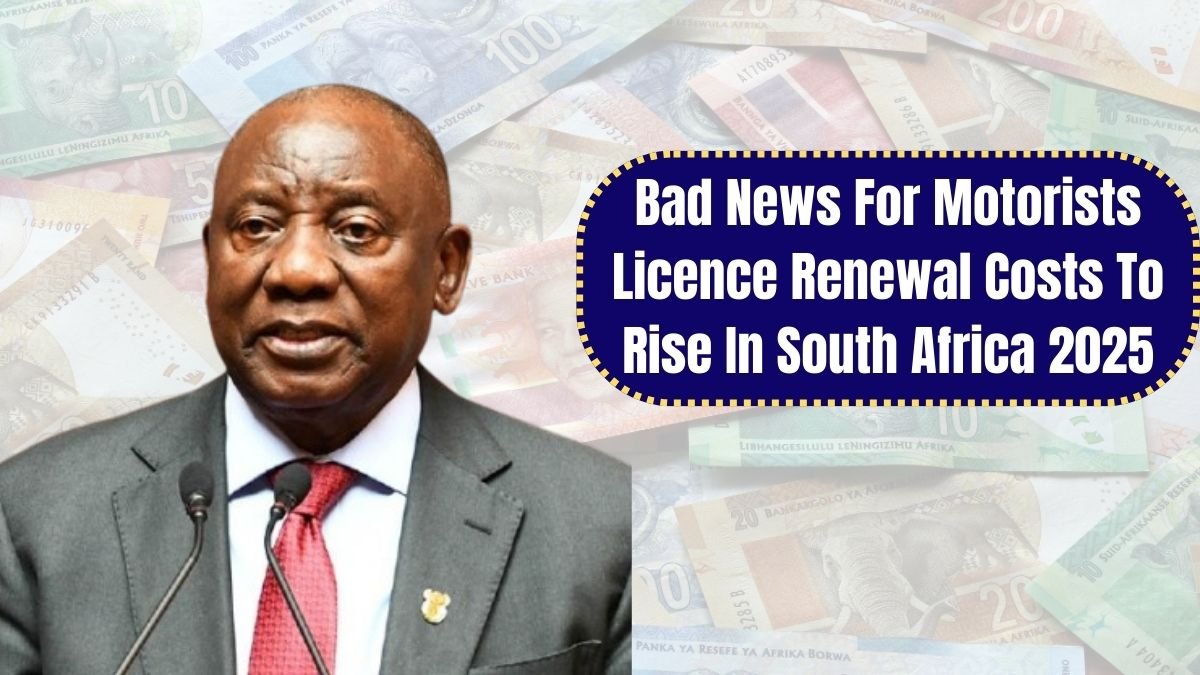The year 2025 is seeing the vehicle owners of South Africa going through another series of annual licence renewal fee hikes, payment for which has simply been added to their ever-growing vehicle ownership expenses. Fees are paid depending on the province and the weight of the vehicle, so if you keep informed about your fee payments, penalties should never be levied on you. Hence the article discusses increasing vehicle licence fees in the different provinces within this country, penalties for late renewals, and ideas on ways to digitise the process.
Rising Costs Across Provinces
Licence renewal fees in South Africa are set to increase in 2025, driven by inflation, administrative costs, and road infrastructure funding. In Gauteng, fees have risen by 6% to 7% as of April 2024, with a car weighing 750kg to 1,000kg now costing R432 annually to renew. Heavier vehicles, like SUVs, face fees up to R1,836. The Western Cape, despite a 4% to 5% hike, remains the cheapest, with small hatchbacks at R390 and large SUVs at R1,458. KwaZulu-Natal, maintaining 2024 rates, is the most expensive, with fees for similar vehicles exceeding Gauteng and Western Cape by up to R84 and R306, respectively. North West offers the lowest fees, starting at R366 for small cars, while Gauteng and KwaZulu-Natal charge the highest for larger models.
Late Renewal Penalties
There is a 21-day grace period during which a motorist may renew his licence after it has expired. From then on, parents are going to be charged 10% of the out-yearly fee per month of lateness. For instance, a hatchback natured in Gauteng paying R432 will incur a penalty of R43.20 for every late month. Carrying an expired licence can attract a fine; your vehicle could also be impounded, or your account could be suspended by NATIS if you are caught not renewing regularly enough. So renew timely to avoid penalties and complications from the law.
Renewal and Dispatch Options
The renewal of a card is a huge turnaround for digital services. In most cases, online card renewal is done through digital online platforms such as NATIS, FNB, and Capitec, with payment channels opened even for some retailers such as Shoprite and Checkers. This has reduced the long queues at licensing centers. However, disruption hit PayCity and SAPO SapoMVL operations in 2024, closing down some options and greatly reducing those consumers all once had to choose from. Banks like FNB have the delivery fee fixed at R99 for couriering, whilst the retailers continued couriering in the country for a fee; Shoprite had a discounted fee of R185 (which is expiring in January 2024). This kind of digital service requires an identity document, proof of residence, and proof of payment via EFT or card. Thereafter, the disc is couriered. This service might be payable and, as such, considered another additional expense. In any case, any outstanding traffic violation fines need to be cleared before renewal may be done.
The Push for Digitalisation
Experts advocated for licensing social services to be fully digitised and to work along line SARS eFiling, thus dispensing with discs and paperwork. Lesser costs and better service shall be the result of that. One can book renewals online using NATIS in Gauteng and Eastern Cape, but one has to go physically for fingerprints and eye testing. Licensing units are being established to relieve DLTCs, which is yet another step away from digitalisation.
also read : Child Support Grant of R560 to Arrive September 5 – Early Bank SMS Alerts Promised
